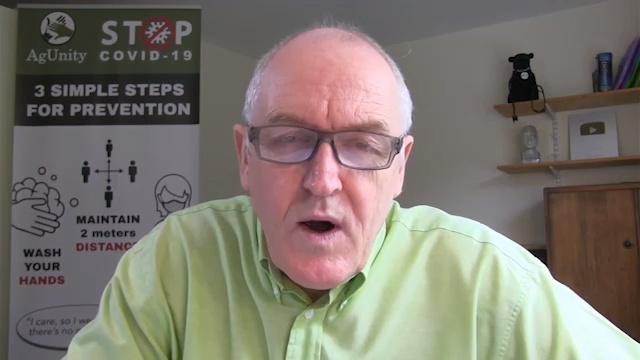
Belgium, not Dutch. Low-dose Hydroxychloroquine Therapy and Mortality in Hospitalized Patients with COVID-19: A Nationwide Observational Study of 8075 Participants (International Journal of Antimicrobial Agents, 24 August) https://www.sciencedirect.com/science…
Background
Hydroxychloroquine (HCQ) has been largely used and investigated as therapy of COVID-19 , at total dose usually ranging from 2400 mg to 9600 mg.
In Belgium, off-label use of low-dose HCQ (2400 mg in total over five days) was recommended for hospitalized patients with COVID-19.
“low-dose” regimen of HCQ sulphate in monotherapy
400mg twice on day 1
200mg twice a day from day 2 to 5
i.e. a total dose of 2400 mg
Methods
Multi-centric design
Vast majority of Belgian hospitals
Retrospective analysis
In-hospital mortality in Belgium
40 day follow up
No difference in the baseline characteristics
Groups
HCQ alone and supportive care
Supportive care only
Adjusted for demographic and clinical features
Results
8075 patients with complete discharge data
HCQ group, n = 4,542
Deaths, 804, (17.7%)
no-HCQ group, n = 3,533
Deaths, 957 (27.1%)
Multivariable analysis
Mortality was lower in the HCQ group compared to the no-HCQ group
Hazard ratio = 0.684
Estimated direct-adjusted mortality at 40 days
19.1% with HCQ alone
26.5% with supportive care only
Mortality in the HCQ group was reduced
Both in patients diagnosed in less than 5 days and more than 5 days
Conclusions
Compared to supportive care only, low-dose HCQ monotherapy was independently associated with lower mortality in hospitalized patients with COVID-19 diagnosed and treated early or later after symptom onset.
Other positive studies
https://www.sciencedirect.com/science…
Risk Factors for Mortality in Patients with COVID-19 in New York City
https://link.springer.com/article/10….
Hydroxychloroquine use was associated with decreased in-hospital mortality
Treatment with hydroxychloroquine, azithromycin, and combination in patients hospitalized with COVID-19
https://www.ijidonline.com/article/S1…
treatment with hydroxychloroquine alone and in combination with azithromycin was associated with reduction in COVID-19 associated mortality
Studies that where unsuccessful at achieving efficacy.
Recovery Trial
Effect of Hydroxychloroquine in Hospitalized Patients with COVID-19: Preliminary results from a multi-centre, randomized, controlled trial. 15 July 2020
https://www.recoverytrial.net/results…
https://www.medrxiv.org/content/10.11…
Hydroxychloroquine group, n = 1,561
Usual care group, n = 3,155
Patients allocated to hydroxychloroquine sulfate (200mg) received a loading dose of 4 tablets (800 mg) at zero and 6 hours, followed by 2 tablets (400 mg) starting at 12 hours after the initial dose and then every 12 hours for the next 9 days
9,200 mg over 10 days
Conclusion
In patients hospitalized with COVID-19, hydroxychloroquine was not associated with reductions in 28-day mortality
Was associated with an increased length of hospital stay and increased risk of progressing to invasive mechanical ventilation or death
WHO-led SOLIDARITY
https://www.who.int/news-room/detail/…
9600 mg over 10 days
Provided no benefit in hospitalized patients with COVID-19
Hydroxychloroquine with or without Azithromycin in Mild-to-Moderate Covid-19 (NEJM23 July)
Brazil
https://www.nejm.org/doi/full/10.1056…
METHODS
55 hospitals, Brazil
Randomized Open label
Three-group
Controlled Patients 667 patients, 504 confirmed Covid-19
Receiving no supplemental oxygen Or a maximum of 4 liters per minute
1:1:1
Standard care n = 229
Standard care plus hydroxychloroquine (400 mg twice daily) n = 221
Standard care plus hydroxychloroquine (400 mg twice daily) plus azithromycin (500 mg once daily for 7 days) n = 277
RESULTS
No difference in need for ventilation, deaths, thromboembolic complications, AKI Clinical status at 15 days As compared with standard care = 1 Hydroxychloroquine alone, odds ratio, 1.21 Hydroxychloroquine plus azithromycin, odds ratio, 0.99 HCQ Group Prolongation of the corrected QT interval and Elevation of liver-enzyme levels
CONCLUSIONS
Among patients hospitalized with mild-to-moderate Covid-19, the use of hydroxychloroquine, alone or with azithromycin, did not improve clinical status at 15 days as compared with standard care.
If you would like to donate to John’s educational projects, please use the following link, thank you, https://www.paypal.com/cgi-bin/webscr…
RELATED:
Belgium Study 8,075 patients: Low HCQ doses resulted in lower mortality in Covid patients
100 doctors go to Brasilia to order hydroxychloroquine from popular pharmacies
What Is Gilead’s Role In The War On Hydroxychloroquine?
Australian MP Craig Kelly delivers powerful parliamentary speech on hydroxychloroquine
